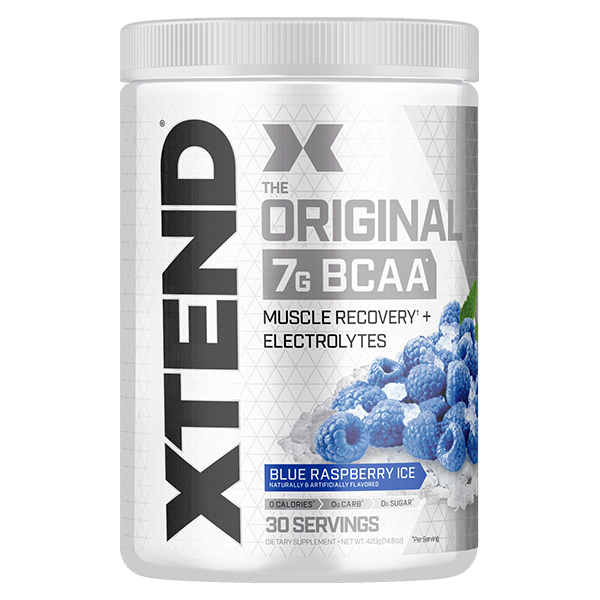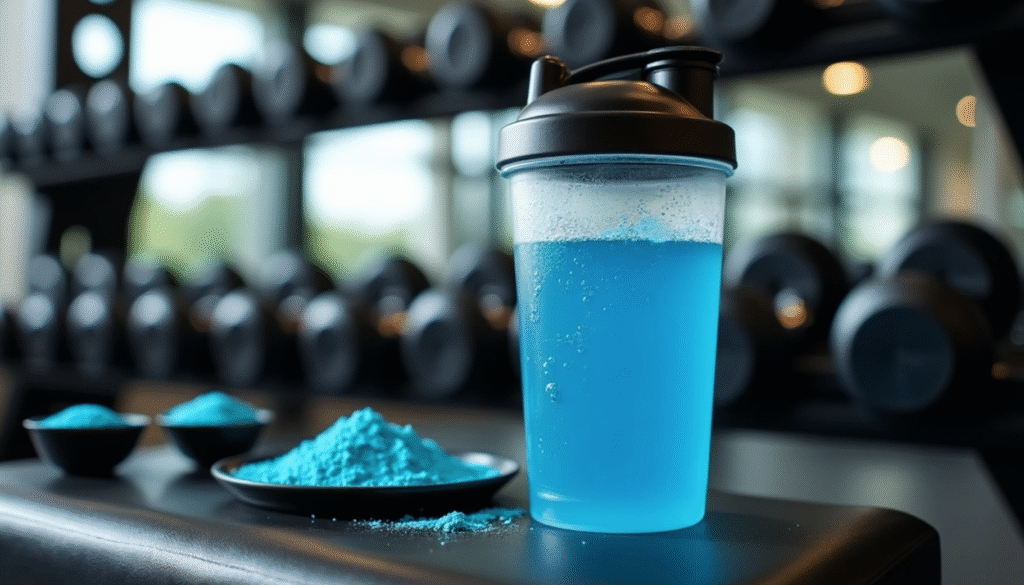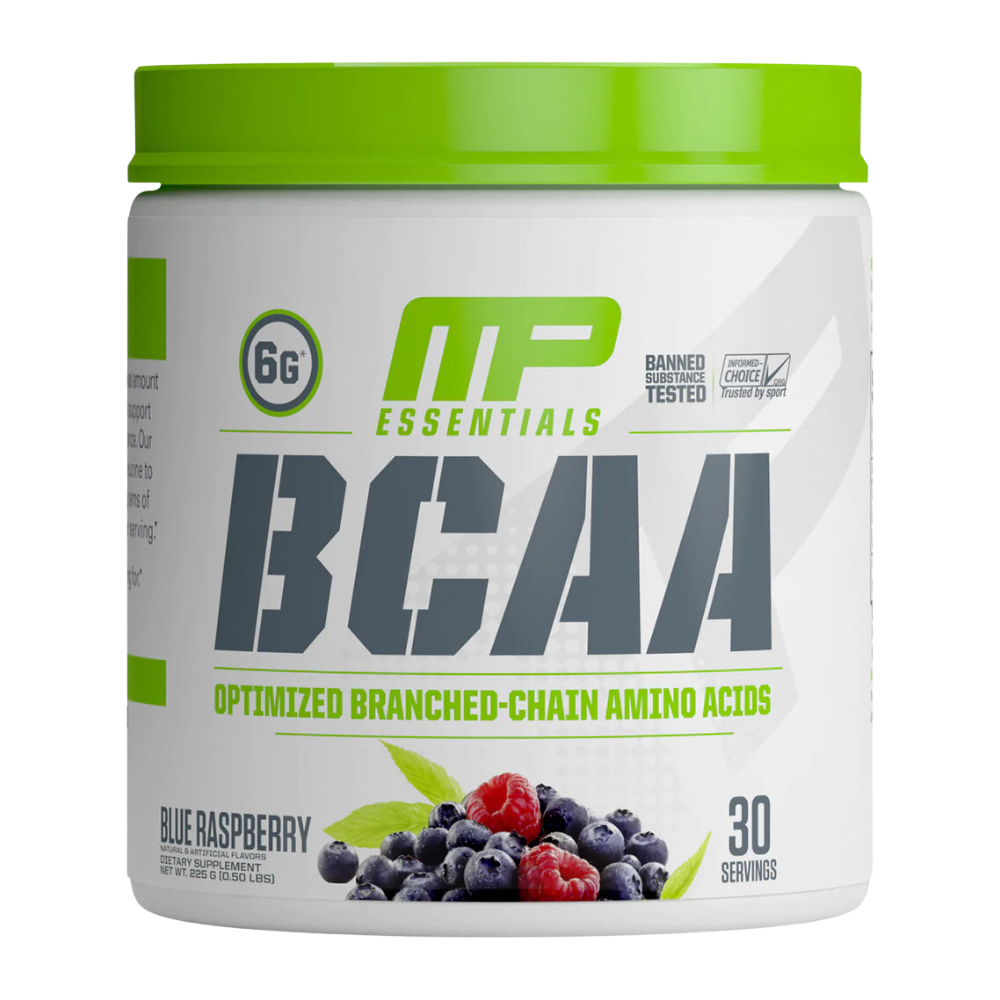The timing of your BCAA supplements could be the missing piece in your fitness plan. Did you know that taking BCAAs at the right time can increase muscle protein synthesis?
BCAAs (branched-chain amino acids) include three essential amino acids—valine, leucine, and isoleucine—typically in a 2:1:1 ratio. These make up about 40% of your body’s essential amino acids pool, and muscles store about 18% of them. This makes timing more so important. Fitness enthusiasts still debate whether to take BCAAs before or after workouts, especially since BCAA blood levels peak about 30 minutes after you take them.
The right BCAA supplementation can reduce muscle soreness. A small study revealed that young men who took 10 grammes of BCAAs before exercise felt less sore than those who took them after. The best time to take BCAAs for muscle growth might change based on your goals and training schedule.
This piece will help you find the perfect time to drink BCAA supplements for maximum benefits. You’ll learn if you need them on rest days and how to figure out the right dosage for your weight and fitness goals.
Why Timing Matters When Taking BCAAs
The science behind when to take BCAA supplements shows how timing can affect your results by a lot. Your body’s biological mechanisms help you make better decisions about when to take these supplements.
How BCAAs work in the body
BCAAs differ from other amino acids because your skeletal muscles process them directly instead of your liver. This unique feature makes them readily available as building blocks and energy sources during exercise. BCAAs, especially leucine, activate the mechanistic target of rapamycin (mTOR) signalling pathway that controls protein synthesis in muscles. This activation is a vital part of starting the muscle-building process at cellular level.
Your muscles use BCAAs in two ways – they boost protein synthesis and stop protein breakdown. These actions create the perfect environment for your muscles to grow and stay preserved, especially during intense training periods.
The link between timing and muscle recovery
BCAA supplements work best when you time them right. Research shows your blood’s BCAA levels peak about 30-60 minutes after you take them. This peak timing matters a lot to maximise your recovery benefits.
Research proves that taking BCAAs can trigger early myofibrillar protein synthesis rates quickly, pushing them up from 0.02%/h to 0.044%/h. A single BCAA dose can spark protein synthesis right away, but this effect doesn’t last long without other amino acids. Regular protein sources, however, keep synthesis rates high for up to 5 hours after exercise.
Do BCAAs before or after workout make a difference?
Clinical research answers this question clearly. One important study found that people who took 10 grammes of BCAAs before strength training had less muscle soreness and lower blood markers of muscle damage compared to those who took them after.
Another study with eccentric exercise showed that taking BCAAs before working out reduced delayed onset muscle soreness (DOMS) and exercise-induced muscle damage better than taking them after. People who took BCAAs before exercise recovered better, showing improvements in muscle soreness, arm/leg circumference, and maximum voluntary contraction.
Your best bet is to take BCAAs 30 minutes before working out. This timing lets your blood’s BCAA levels peak during training, though you’ll still get benefits whether you take them before or after exercise.

When Should You Take BCAAs?
The right BCAA timing builds a strong foundation to reach your fitness goals. Scientific research reveals specific time windows that maximise these amino acids’ benefits throughout your training.
Pre-workout: Energy and endurance
BCAAs taken approximately 30 minutes before exercising reach peak blood levels during workouts and give you extra energy while fighting fatigue. Your brain’s serotonin levels drop with this timing strategy, which helps you push through tough sessions. Research shows that people who take BCAAs before working out feel less muscle soreness (DOMS) and show fewer signs of muscle damage compared to those who take them after.
BCAAs before workouts help people who train while fasting. They protect muscle tissue and make sure your body burns fat first. Studies point to 5-10g as the sweet spot – participants who took 5.6g of BCAAs before resistance training built 22% more muscle protein.

Intra-workout: Reducing fatigue
BCAAs become instant energy sources during long training sessions when your carbs run low. Taking them while you work out helps ease central fatigue. They block tryptophan from reaching your brain, which keeps you focused and energised. Endurance athletes benefit from this effect – a study found lower serotonin levels in cyclists who took BCAAs.
You need at least 4 grammes during workouts to keep BCAA levels steady. This constant supply cuts down muscle breakdown while supporting new growth.
Post-workout: Muscle repair and soreness
BCAAs kick-start muscle protein synthesis after intense workouts, which rebuilds damaged tissues. Studies consistently show that BCAAs reduce workout-caused muscle damage (EIMD) and soreness, letting you train more often with less pain.
Rest days: Supporting recovery
Taking BCAAs on your off days helps recovery and maintenance. They keep working to reduce soreness and repair muscle even when you’re not training. Muscle protein synthesis doubles 24 hours after resistance training. BCAAs during this time prevent muscle breakdown and get your body ready for your next workout.
How to Use BCAAs in Your Routine
Your fitness goals depend on how you use BCAA supplementation in practise. The right methods and timing will help you get the most out of these amino acids during your training.
How to take BCAA powder
You’ll find BCAA supplements mainly as powders and capsules. Powders work better than capsules because they digest faster, let you adjust doses exactly, and mix well with different drinks. Here’s how to prepare your BCAA drink:
- Mix the recommended amount with water, sports drinks, or cordials
- Make sure it dissolves completely before drinking
- Take it before, during, or after your workout based on your goals
Capsules might be handy when you’re travelling, but they usually have smaller doses and take longer to digest than powders. No matter which type you choose, drink plenty of water to help your body absorb the nutrients and avoid stomach issues.
Ideal dosage for different goals
Your ideal BCAA intake changes based on your weight and how hard you train. Studies show you should take 0.03-0.05g per kg of body weight each hour during exercise. Daily amounts look like this:
Body weight-based recommendations:
- Under 70kg: about 3-5g per serving
- Over 70kg: about 5-10g per serving
The best results for muscle growth come from taking 10-20g total daily, split into several doses throughout the day. Research shows BCAAs work better when you spread them out rather than taking them all at once.
When to drink BCAA during the day
BCAAs can help you more when you time them right throughout your day. Here are some good times to take them:
- Right after waking up to start muscle recovery
- Between meals to keep protein synthesis going
- Before sleeping to help overnight recovery (make sure there’s no caffeine)
BCAAs help preserve muscle especially well if you’re cutting calories or doing intermittent fasting. Regular use matters more than perfect timing – research shows you get better results from taking them consistently over time.

Who Benefits Most from BCAA Supplementation
BCAA supplementation works better for certain groups of people. The timing of BCAA intake becomes especially important if you have specific fitness goals. Your supplementation strategy should align with your personal fitness trip.
Athletes and bodybuilders
BCAAs provide most important performance improvements for dedicated strength athletes. Research shows resistance-trained males who took BCAAs before and after intense workouts recovered muscle function faster than those on placebo. A study showed that BCAA supplements increased upper body strength by 15.1 kg and lower body strength by 7.1 kg over 8 weeks.
Leucine seems to be the driving force that activates protein synthesis pathways to stimulate muscle growth. Athletes who compete also showed better physical performance during endurance exercises’ later stages when taking BCAAs.
People on calorie-restricted diets
BCAAs become even more valuable when you’re cutting calories while training. Studies reveal that people on low-calorie diets who took BCAAs managed to keep their lean mass while losing fat. Those taking carbohydrates lost 0.90 kg of lean mass instead. Competitive wrestlers who took BCAAs during their calorie-restricted diets lost 3.5 more pounds (1.6 kg) and 0.6% more body fat compared to those taking soy protein supplements.
Protection against muscle breakdown is vital. Your body typically breaks down muscle protein for energy when exercising with low calories and depleted glycogen stores. BCAAs help prevent this process effectively.
Those recovering from intense training
BCAAs help lower muscle damage markers like creatine kinase (CK) and lactate dehydrogenase (LDH) after intense exercise. This reduction helps improve exercise performance and recovery. Research participants who received BCAAs rated their muscle soreness 33% lower than those given placebo.
Long-term BCAA intake benefits resistance athletes exceptionally well. Studies show these athletes experience much less muscle soreness after exercise. The results for endurance athletes remain somewhat unclear.
Conclusion
BCAAs play a vital role to maximise your fitness results with proper timing. These essential amino acids work directly in your muscles to stimulate protein synthesis and prevent breakdown. The timing makes a big difference. Taking supplements during long training sessions helps curb fatigue, and post-workout intake speeds up recovery.
Your supplementation schedule depends on your fitness goals. Athletes and bodybuilders can benefit from multiple daily servings of 10-20g. People on calorie-restricted diets can use BCAAs to keep their hard-earned muscle mass. The right dose depends on your weight – heavier people need 5-10g per serving while lighter individuals do well with 3-5g.
Perfect timing isn’t as important as staying consistent. Regular BCAA supplementation around your workouts and throughout your day creates an environment that supports muscle growth, reduces soreness, and improves recovery. Try different timing protocols to find what works best for your body and training routine. Once you find what works, stick with it to get the most muscle-building benefits.


